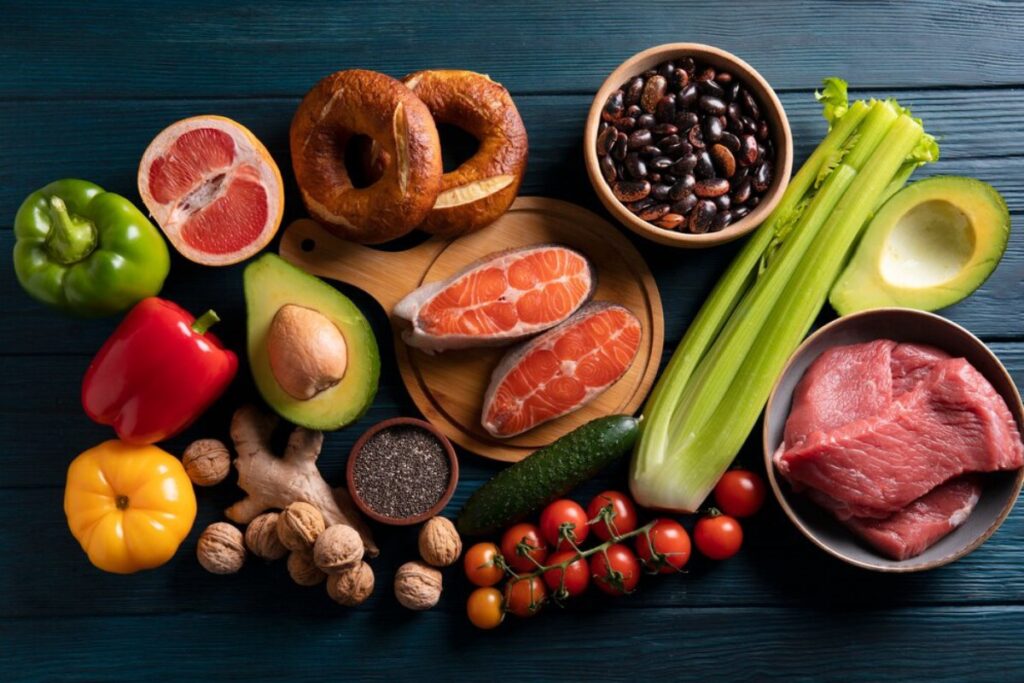The Health & Wellness Blog

Anti-Inflammatory Foods for Diabetes Management
Diabetes is a chronic disease that impacts millions around the world. Your diet and blood sugar levels — and health overall — is everything, whether you have type 1, type 2 or prediabetes. A crucial consideration is inflammation. Chronic inflammation can exacerbate insulin resistance. These can cause serious problems such as heart disease, kidney disease and neuropathy.
Dieting: An anti-inflammatory diet can go a long way. Some of the key nutrients that make up the anti-inflammatory foods are great at modulating blood sugar. They also improve your long-term health. Well, in this blog, we will explore the role of anti-inflammatory nutrition in managing diabetes. The best foods to eat are? We’ll also highlight common dietary pitfalls and share expert advice for flourishing.
Why It Matters: Inflammation and Diabetes
Chronic inflammation has a great impact on diabetes progression, especially type 2 diabetes mellitus. This results in insulin resistance — when your body’s cells fail to respond to insulin. That makes it harder to control blood glucose in the long-term.
Studies show that people with high inflammation markers are more likely to get diabetes or have complications. Diet is a key factor in reducing these markers. Shifting to anti-inflammatory foods can help:
- Improve insulin sensitivity
- Lower blood glucose spikes
- Reduce oxidative stress
- Prevent or delay complications
Managing inflammation with diet is backed by evidence and can improve your metabolic health.
Key Benefits of Anti-Inflammatory Eating for Diabetes
1. Improved Blood Sugar Regulation
Anti-inflammatory foods are rich in fibre, healthy fats, and antioxidants. They help keep blood sugar levels stable. Foods like oats, lentils, and leafy greens slow glucose absorption, reducing spikes after meals.

2. Enhanced Insulin Sensitivity
Omega-3 fatty acids from salmon, chia seeds, and walnuts improve cell function, allowing insulin to work better. Over time, this leads to better glucose control.
3. Weight Management
Excess belly fat increases inflammation and worsens insulin resistance. Anti-inflammatory diets have less processed food and sugar. This helps with weight loss and keeps weight steady.
4. Cardiovascular Protection
People with diabetes face a higher heart disease. Anti-inflammatory foods, such as berries, fatty fish, olive oil, and green tea, support heart health. They lower LDL cholesterol, reduce blood pressure, and improve how arteries work.
Top Anti-Inflammatory Foods for Blood Sugar Control
Add these foods to your diabetes diet for anti-inflammatory benefits and better blood sugar regulation:
Fatty Fish
- Salmon, sardines, mackerel, and trout are rich in omega-3 fatty acids.
- They help lower inflammation markers like CRP.
Leafy Greens
- Spinach, kale, and Swiss chard are full of fibre, vitamins, and antioxidants.
- They support glucose metabolism and reduce oxidative stress.
Berries
- Blueberries, raspberries, and strawberries are packed with polyphenols.
- They improve insulin sensitivity and minimise blood sugar spikes.
Whole Grains
- Quinoa, oats, and brown rice are high in fibre.
- They ensure slow glucose release and prolonged fullness.
Legumes
- Lentils, chickpeas, and black beans offer plant protein and fibre.
- They help maintain stable blood sugar and lower inflammation.

Nuts and Seeds
- Almonds, walnuts, flaxseeds, and chia seeds provide healthy fats.
- They reduce inflammation and offer steady energy release.
Spices and Herbs
- Turmeric, cinnamon, ginger, and garlic have anti-inflammatory effects.
- Cinnamon is linked to better insulin sensitivity.
Fermented Foods
- Yogurt, kefir, sauerkraut, and kimchi contain probiotics.
- They support gut health, influencing inflammation and metabolism.
Additional Expert Tips & Common Mistakes to Avoid
Expert Tips:
- Balance Every Meal: Include lean protein, healthy fats, and complex carbs to stabilise blood sugar.
- Plan Ahead: Prepare meals with anti-inflammatory ingredients to avoid unhealthy last-minute choices.
- Hydrate Wisely: Pick water, herbal teas, or infused water. Avoid sugary drinks because they raise inflammation and glucose levels.
- Listen to Your Body: Everyone responds differently to food. Track meals and blood glucose to find what works for you.
Common Mistakes:
- Thinking All “Healthy” Foods Are Low Glycaemic: Dried fruits or fruit juices may seem healthy, but can spike blood sugar.
- Don’t Overuse Supplements: Omega-3 and antioxidant supplements can be helpful, but they can’t take the place of whole foods.
- Skipping Meals: Missing meals can lead to overeating and unstable blood sugar levels.
- Ignoring Labels: Some foods marked as “diabetic-friendly” may still have added sugars or harmful oils.
Advanced Insights and Expert Recommendations
Personalisation Is Key
Not every anti-inflammatory food suits every person with diabetes. Personalised nutrition leads to the best results. It considers genetics, gut health, lifestyle, and personal preferences. Registered dietitians can help you make a personalised eating plan. They consider your allergies, preferences, and how your body responds to glucose.

Understanding the Glycaemic Impact
Anti-inflammatory eating helps lower inflammation. However, controlling blood sugar is also key for diabetes management. Combining both principles—choosing low-glycaemic, anti-inflammatory foods—offers a double benefit.
For example:
- Choose steel-cut oats instead of instant oats.
- Select fresh berries over dried fruits.
- Opt for whole quinoa rather than refined white rice.
Gut Health and Inflammation
The gut microbiome affects both inflammation and glucose regulation. A healthy gut can improve insulin sensitivity, reduce cravings, and help with weight management.
Boost gut health by:
- Eating a variety of fibre-rich veggies and legumes.
- Including fermented foods regularly.
- Avoiding unnecessary antibiotics.
- Limiting artificial sweeteners and preservatives that disrupt gut flora.
The Importance of Gut Health in Diabetes and Inflammation
Research highlights the role of gut health in managing diabetes and inflammation. The gut microbiome impacts immune function and metabolic health. Diabetes can upset gut bacteria. This imbalance can lead to more inflammation and insulin resistance.
To support a healthy gut:
- Eat prebiotic foods like onions, garlic, asparagus, and bananas.
- Include probiotic-rich foods like yoghurt and kefir.
- Choose a high-fibre diet to nourish beneficial bacteria.
Good gut health is important. It helps with digestion and lowers inflammation. It also improves blood sugar control and boosts overall well-being.
Nourishing Your Way to Better Health
Adopting an anti-inflammatory diet for diabetes is not just some fad. It’s a science-based approach for encouraging long-term health. Foods high in fiber, healthy fats, and antioxidants help manage inflammation when eaten whole. It also governs blood sugar and it protects against complications.
This might be scary at first, but small changes can make a significant difference. Avoid sugary snacks, go for nuts instead. Choose whole grains over refined grains. Also, add colourful fruit and vegetables to every meal.
Do it today: Implement one anti-inflammatory change this week. Your body — and your blood sugar — will thank you.
Are You Adding Anti-Inflammatory Foods to Your Diabetes Diet? Leave a note in the comments about your favourite meals or tips!









